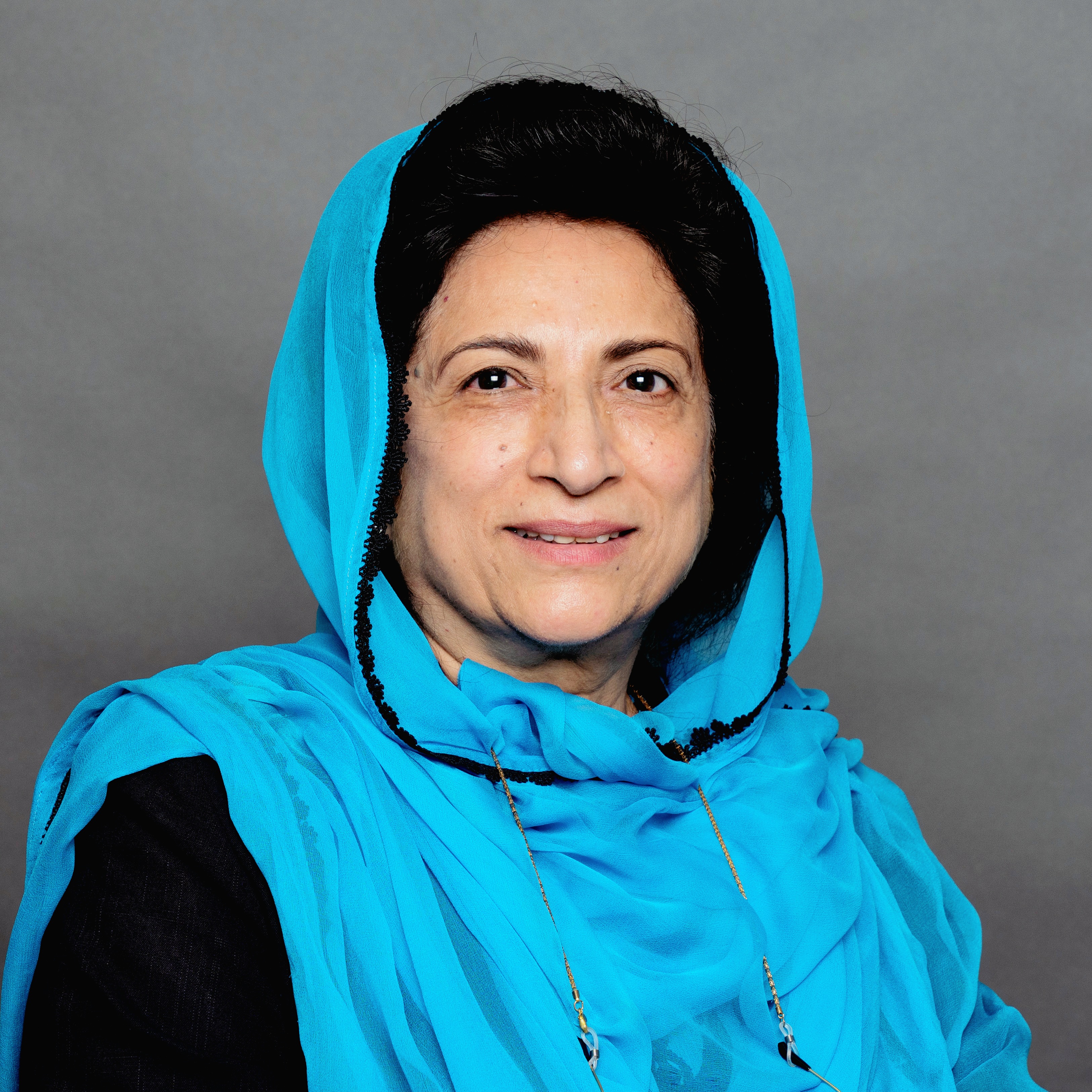
Dr. Shabina Raza
Biography
Dr. Shabina Raza has been a pivotal figure in Pakistan's public health sector since 2019, serving as the Country Director of Nutrition International and Convener of the SUN Civil Society Alliance, Pakistan and SUN Academia & Research Network Pakistan. With over 30 years of experience, Dr. Raza holds an MS, MBBS, and a Postgraduate degree in Health Planning & Management, specializing in reproductive health, maternal, neonatal, and child health & nutrition, service delivery, policy development, and health systems strengthening.
As the Country Director for Nutrition International Pakistan, Dr. Raza provides strategic, technical, and operational guidance to Nutrition International’s programs. She leads advocacy efforts with key stakeholders, including government and donors, aiming to improve Pakistan’s nutritional status.
As a national convener and Secretary of the SUN Civil Society Alliance, Pakistan, Dr. Raza has led civil society organizations in advocating for nutrition integration in political manifestos, supporting multisectoral nutrition strategies, and enacting mandatory food fortification laws. She has been a strong advocate for breastfeeding laws and has collaborated with the Pakistan Multisectoral Nutrition Platform, Nutrition Advisory Group, National Nutrition Forum, and various technical working groups.
Dr. Raza's notable achievements include the approval of food fortification laws in three provinces, enforcement of breastfeeding laws, and the integration of nutrition and reproductive health into mainstream health programs. She pioneered the Sprinkles Initiative to combat anemia in infants and has extensive experience working with government and international donors.
In previous roles within the Department of Health of Khyber Pakhtunkhwa, Dr. Raza introduced initiatives like the Sprinkles Initiative to control anemia. She contributed to the first Population Policy of Khyber Pakhtunkhwa in 2015 and was instrumental in developing the province’s Public Health Supply Chain Strategy 2017-22.